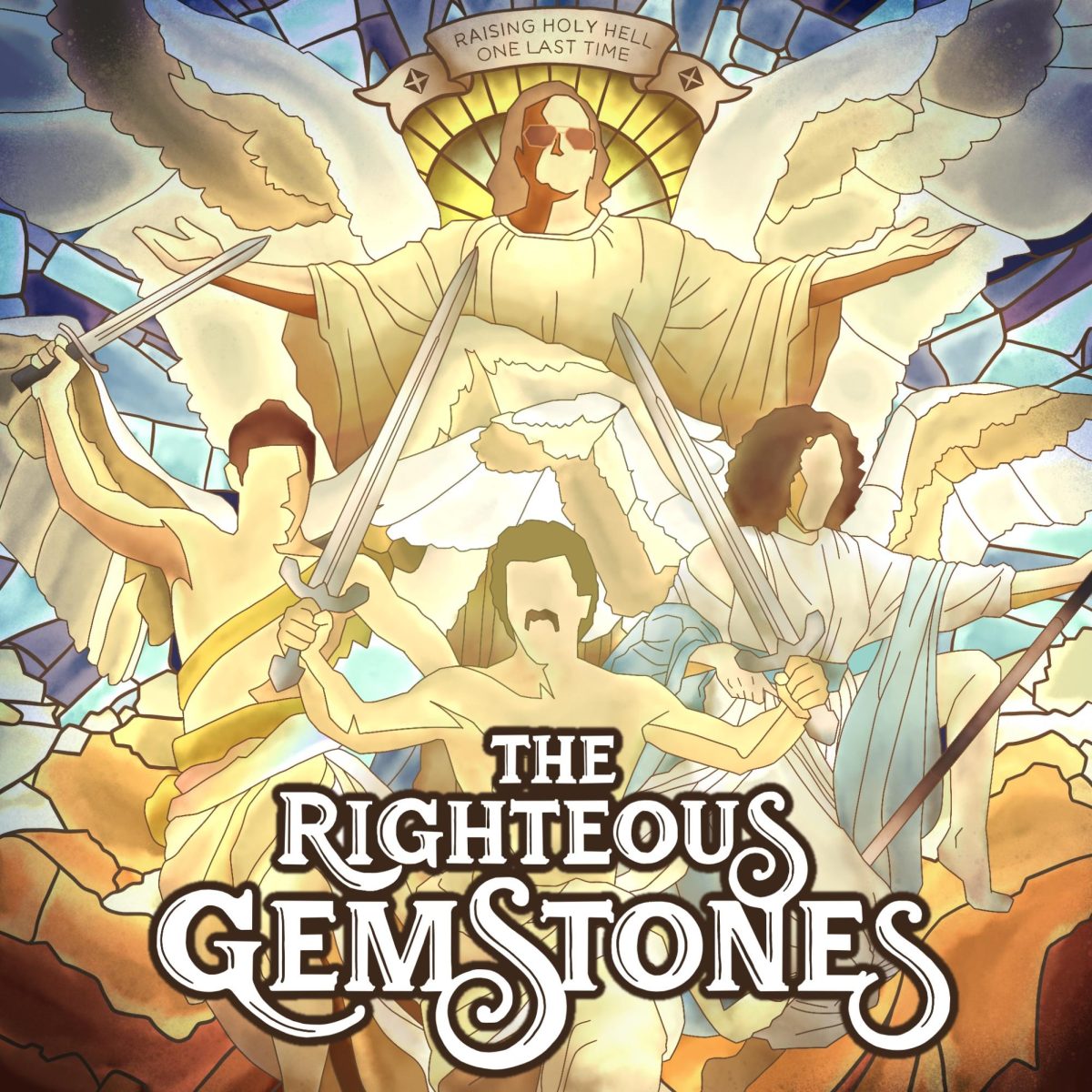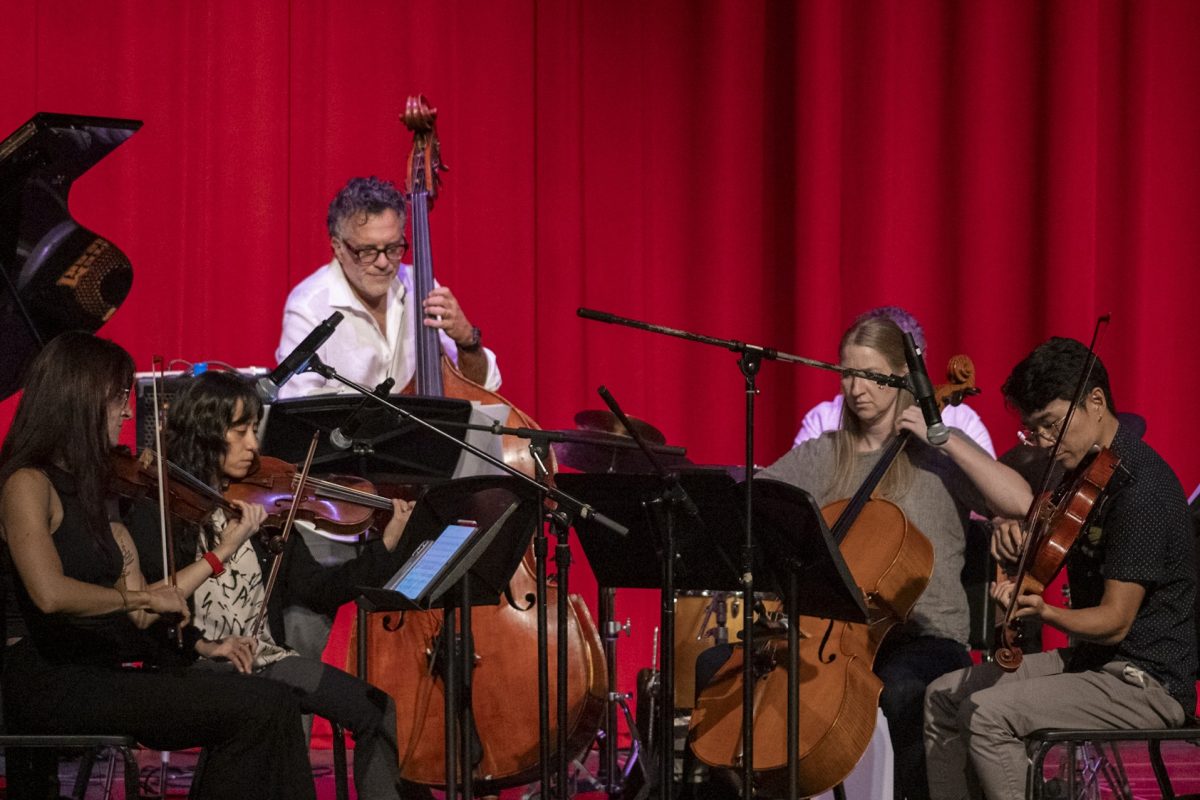Never would I, an agnostic, have thought I would spend four days binge-watching a TV show about a fictional southern family and their lavish evangelical empire, but here we are.
As I looked for a new show to enjoy during spring break over a month ago, I stumbled upon “The Righteous Gemstones,” an HBO series created by Danny McBride, who is also known for his shows “Eastbound & Down” and “Vice Principals.” As I recalled watching the pilot episode with my parents long ago and liking it, I decided to finally give this dramedy a fair shot. To put it simply: I felt more than thrilled to find out after I caught up that season four, the final season, currently had a new episode coming out every Sunday.
“The Righteous Gemstones” revolves around a South Carolina family who struck massive fortune and fame through their Christian megachurch and televangelism; however, despite their perceived purity, they each engage in their own various “less-than-holy” activities on the side. After the passing of Gemstone matriarch Aimee-Leigh (Jennifer Nettles), her grown-up children — Jesse (McBride), Judy (Edi Patterson) and Kelvin (Adam DeVine) — and her lead-pastor husband Eli (John Goodman) mourn her loss while simultaneously fighting to keep their power, wealth and family in line.
In season four, Eli, much to the chagrin of his children, retires and at long last enters a new relationship. The Gemstones also reach the boiling point in their rivalry with Vance Simkins (Stephen Dorff) from season three, and uncle Baby Billy (Walton Goggins) finds a new scheme to get mixed up in.
To talk about the new season of “The Righteous Gemstones” without covering the humor would be a sin in itself, as one of my favorite parts of the show is its consistently high-quality comedy. McBride, John Carcieri and the many other writers manage to balance absurdist, shocking, satirical and raunchy styles of comedy in their jokes, providing for a well-rounded experience of laughter. Season four carries a slightly more grounded atmosphere than its predecessors, but it still continues with its unhinged, charming flair.
The performances from the actors also build on the hilarity; while we find ourselves expecting brilliant comedic deliveries from the likes of Patterson and Goggins, for instance, Goodman stepped outside Eli’s usual box as the more serious of the Gemstones. I enjoyed seeing him keep the essence of his character alive while also adding to this more goofy, laid-back side that, previously, we only occasionally witnessed.
Despite me wishing for more of Amber (Cassidy Freeman), aunt Tiffany (Valyn Hall) and Gideon (Skyler Gisondo), many of the various character arcs, even outside of Eli, successfully stuck the landing, like how BJ (Tim Baltz) found a new hobby, inadvertently leading to a plethora of other hurdles for himself and others to face.
In fact, I found that the new relationship between Keefe (Tony Cavalero) — my favorite character since I first started watching — and Kelvin acted as one of the strongest qualities of the entire season by far. After finally confirming their relationship as romantic at the end of season three, it felt refreshing to see these two not only be portrayed as a legit couple while still keeping their silly dynamic, but to also see the show tackle the nuanced issue of homophobia in the church. Although “The Righteous Gemstones” made some occasional LGBTQ+ jokes up to this point, it never fully addressed the well-known rift between the LGBTQ+ and Christian communities, especially the progressive and traditionalist sides, until now. Kelvin is a flawed individual like all the other characters, but his experiences with both internalized homophobia and homophobic rhetoric from those around him humanize his and many other LGBTQ+ people’s struggles around religion in a beneficial way. He fights to overcome his fears in the name of love and authenticity.
The plot of season four contained its own issues, though, particularly when it came to the pacing in the first few episodes.
Every season, “The Righteous Gemstones” includes an “Interlude” episode about halfway through, and it serves as a flashback to flesh out more context to the plot and characters. Season four, however, has “Interlude IV” along with a first episode titled “Prelude,” which took place all the way back in the American Civil War rather than just the 1980s or later. While I appreciated both flashback episodes, each season only consists of nine episodes total, so having two in the last season left less time for the current plot lines, and such a choice caused some moments to feel rushed and others to feel dragged out. Having another episode would have fixed this for the most part.
In relation, season four lacked a strong driving conflict to kickstart the season. Specific episodes, like episode five, nailed the art of building tension and setting up significant obstacles for the Gemstones, but the previous episodes lacked direction in this regard. Luckily, though, the storylines found their footing more as the season progressed onward, and the final episode left me on the very edge of my seat: Let’s just say I will never hear UB40’s “Red Red Wine” the same way ever again.
The idea of redemption continuously appears throughout the series; from as blatant as the appropriately named “Redeemer” monster truck to the symbolism of this season’s golden Bible and more, “The Righteous Gemstones” shows how anyone can improve themselves and those around them. Even though Jesse, Judy and Kelvin constantly bicker and get into serious trouble, they stand up for their family and loved ones, and season four purposefully leans into this complex dynamic with the addition of Lori (Megan Mullally) and her son, Corey (Seann William Scott). Every plotline and detail tied perfectly together in the end, and although the show could have ended after season three, I am eternally grateful it “[raised] holy Hell one last time” and provided a final, epic hurrah.










